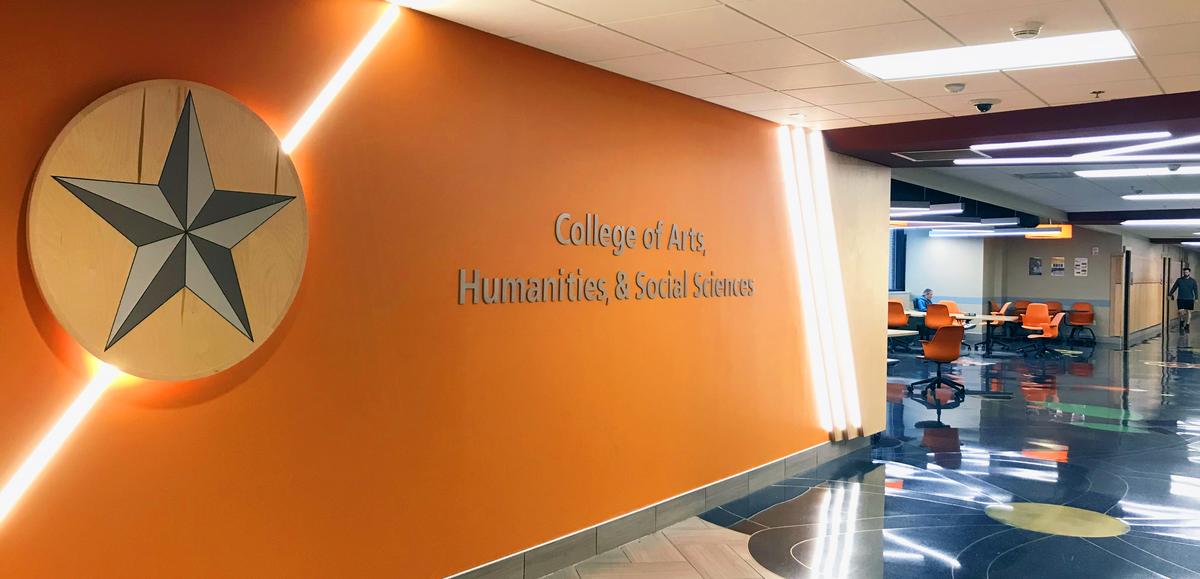First things first, we need to understand and appreciate both the past and the present–what are the trends, what sorts of common themes repeat, and where do we see significant changes? We can’t know where we might be headed without knowing where we have been and where we are now.
Second, we need to understand the world around us. We need to appreciate the world’s rich diversity and find ways to bring all different groups to the table so we can harness our collective creativity.
Third, we need to have a sense of curiosity about what might be and how we can channel that for the greater good.
Finally, we need to be open to lots of different possibilities–thinking big, celebrating our cultural competencies, trying a variety of solutions, and engaging stakeholders.
In other words, it looks a lot like the College of Arts, Humanities, and Social Sciences. One of the hallmarks of our college is how it serves as an incubator for the future. In the stories that you’ll read in this issue of Confluence, you will see many examples of how the students, staff, and faculty are thinking big to shape the future. The skills that students develop over the course of their educational experience in the college give them the tools they need to change their communities for the better. It’s not about replicating what has happened in the past; it’s about using knowledge, communication skills, cultural understanding, and creativity to make something new that benefits society as a whole. That morale is a key part of UMD’s legacy, and it is what will continue to inspire our college going forward.
A few years ago, Dell Technologies and the Institute for the Future brought together a number of leaders in business, technology, and academia to look into the future and how to prepare for it. One of their most surprising findings was that 85 percent of the jobs that will exist in 2030 do not even exist yet. That’s a pretty mind boggling statistic—and even if they are off by half, we are looking at a future very different from our own.
Fortunately, CAHSS students are incredibly well-positioned to take on those yet-to-be-created roles–and create many of them themselves. With strong critical thinking skills, an ability to work in teams, excellent communication skills, a creative mindset, and experience applying what they have learned in the classroom to the wider world, CAHSS graduates have the sorts of backgrounds and skills that will allow them to thrive as we march into this future.
CAHSS’ students, alumni, staff, and faculty are already shaping the future–and they will continue to do so in remarkable ways.
Jeremy Youde
Dean, CAHSS
